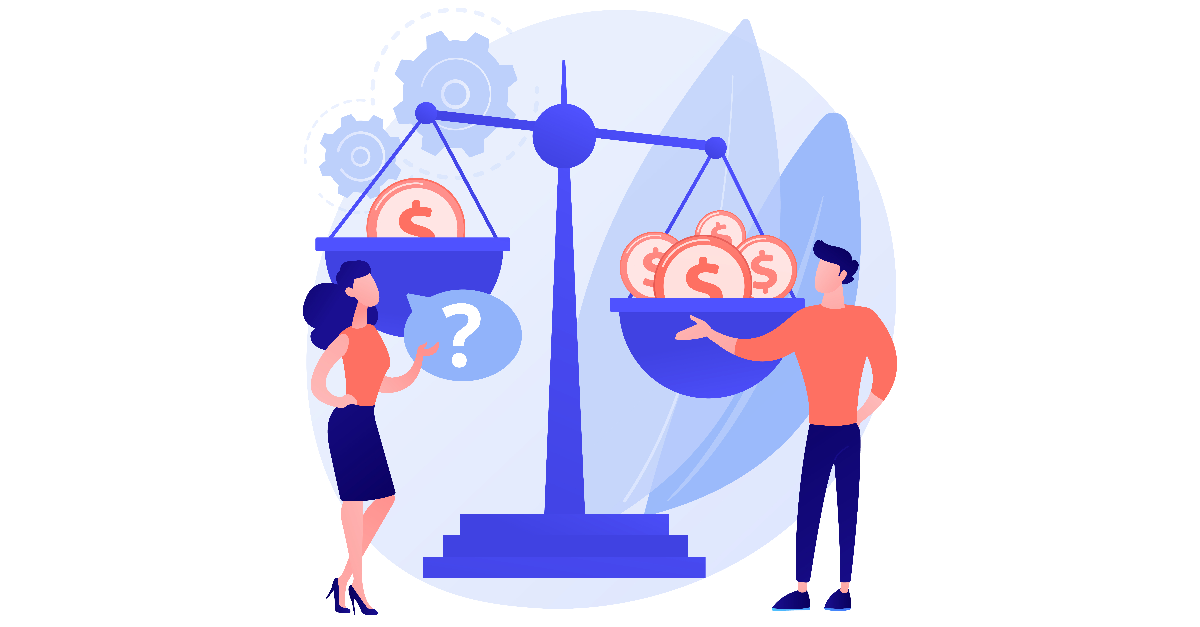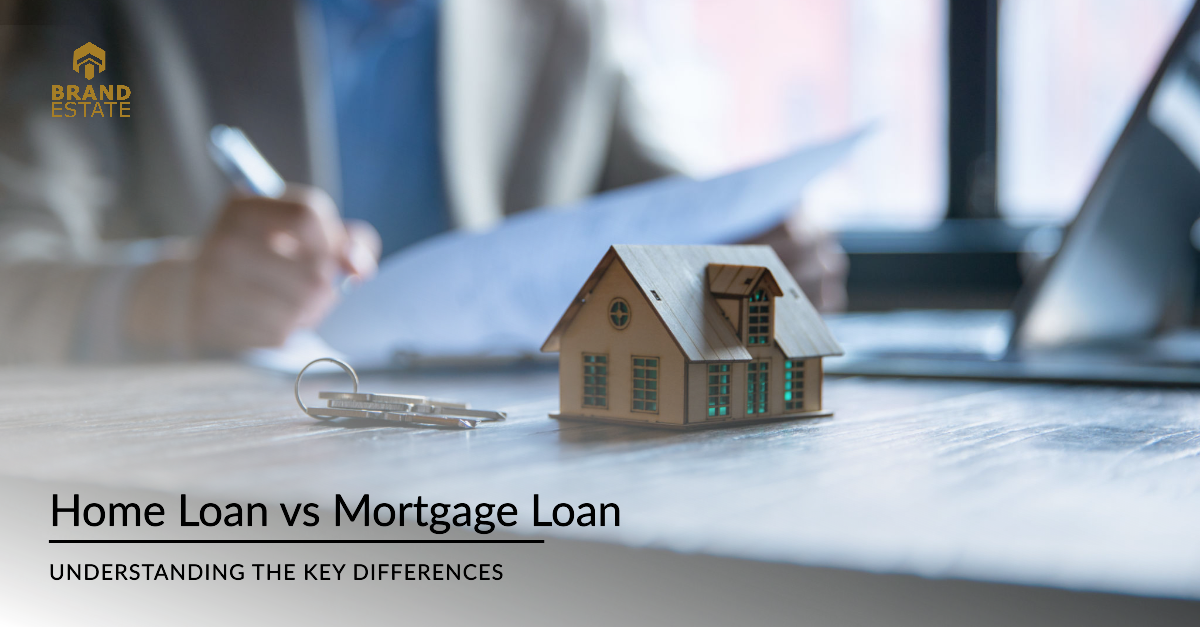We are aware that it can be difficult to navigate the real estate finance landscape. Especially for first-time homebuyers, deciphering the various loan options can feel like trying to unlock a door with the wrong key. Two terms you’ll likely encounter are “Home loan” and “Mortgage loan” While they may sound similar, there are key distinctions that can significantly impact your homeownership journey.
This blog post aims to demystify these terms and empower you to make informed decisions as you explore the exciting possibilities. We’ll delve into the definitions, purposes, and eligibility criteria of home loans and mortgage loans. We’ll also provide a clear comparison table and helpful tips to guide you towards the right financing option for your affordable home.
Understanding Home Loans
A home loan is a specific type of financing designed to help you purchase or construct a residential property. We showcase a diverse range of properties, from luxurious villas to cozy apartments. A home loan acts as a bridge, allowing you to finance a significant portion of the property’s value. The house itself serves as collateral for the loan, meaning if you fail to repay, the lender can repossess it.
How Does a Home Loan Work?
Once you’ve identified your affordable property at Gurgaon, you can approach a bank or lending institution to apply for a home loan. The lender will assess your financial situation, including your income, credit score, and employment history, to determine your eligibility and loan amount. Typically, a higher credit score and a larger down payment will qualify you for a more favorable interest rate and a higher loan-to-value ratio (LTV). The LTV represents the percentage of the property’s value that the loan can cover. Home loans generally offer a higher LTV, often reaching up to 80-90% of the property value, allowing you to finance a larger portion of your purchase.
Benefits of Home Loans:
- Competitive Interest Rates: Home loans are known for offering some of the most competitive interest rates in the market. This translates to lower monthly payments and increased affordability, making your affordable home a more attainable reality.
- Higher Loan-to-Value Ratio: As mentioned earlier, home loans typically allow you to borrow a larger portion of the property value compared to other loan options. This reduces the upfront financial burden of a down payment, making homeownership more accessible.
- Tax Advantages: Depending on your location and tax laws, homeownership can come with certain tax benefits. Interest paid on your home loan may be tax-deductible, offering additional financial advantages.
Exploring Mortgage Loans
A mortgage loan is a broader term encompassing any loan secured by real estate as collateral. While it can be used to finance the purchase of a property at Brand Estate, it can also be used for various other purposes. For example, you might utilize a mortgage loan for home renovations, debt consolidation, or even funding major expenses like education or a wedding.
Types of Mortgage Loans:
There are various types of mortgage loans available, each with its own set of eligibility criteria and interest rates. Here are some common examples:
- Conventional Loans: These loans are offered by private lenders and generally require a good credit score and a minimum down payment (typically 20%).
- FHA Loans: The Federal Housing Administration (FHA) insures these loans, making them accessible to borrowers with lower credit scores and smaller down payments (as low as 3.5%).
- VA Loans: The Department of Veterans Affairs (VA) guarantees these loans for eligible veterans and active-duty military personnel, often with no down payment required.
Eligibility Criteria for Mortgage Loans:
The eligibility criteria for a mortgage loan can vary depending on the loan type and the lender. However, some common factors considered include:
- Credit Score: A higher credit score generally translates to a more favorable interest rate.
- Debt-to-Income Ratio (DTI): Lenders assess your DTI to determine your ability to manage monthly loan payments alongside existing financial obligations.
- Employment History: Stable employment and a history of consistent income are crucial factors for loan approval.
- Property Type and Value: The type of property and its appraised value can impact your eligibility and loan terms.
Home Loan vs. Mortgage Loan: A Clear Comparison

Here’s a table summarizing the key differences between home loans and mortgage loans:
| Feature | Home Loan | Mortgage Loan |
| Purpose | Purchase or construction of a residence | Various purposes secured by real estate |
| Flexibility | Less flexible | More flexible |
| Loan-to-Value Ratio (LTV) | Typically higher (up to 80-90% of property value) | Typically lower (around 75% of property value) |
| Processing Fees | Generally lower | May be slightly higher due to additional verification |
| Interest Rates | Potentially lower | Can vary depending on loan type and creditworthiness |
| Eligibility Criteria | May be stricter (higher credit score, larger down payment) | May be more lenient (depending on loan type) |
Choosing the Right Loan for Your affordable Home
Now that you understand the key distinctions between home loans and mortgage loans, you’re better equipped to make an informed decision. Here are some tips for you:
- Consider Your Purpose: Are you specifically looking to finance a property, or do you have broader needs? A home loan might be the most suitable option due to its competitive rates and higher LTV.
- Evaluate Your Financial Situation: Assess your credit score, down payment capability, and overall financial stability. This will help you determine your eligibility for different loan types and the potential interest rates you may qualify for.
- Compare Loan Options: Compare and analyze the loan offers from different lenders. Consider factors like interest rates, processing fees, loan terms, and any prepayment penalties.
- Consult a Financial Advisor: A qualified financial advisor can provide personalized guidance based on your financial situation and goals. They can help you explore different loan options and choose the one that best aligns with your needs.
We are committed to empowering our clients throughout their homeownership journey. Finding the right financing option is a crucial step in securing your dream property. We encourage you to leverage the resources provided and consult with a financial professional to make an informed decision. With the right financing in place, you can unlock the door to your affordable home at Brand Estate and embark on an exciting new chapter.
Beyond the Basics: Additional Considerations
Remember, this blog post provides a general overview. Specific loan terms and eligibility criteria can vary depending on the lender and your location. Here are some additional considerations to keep in mind:
- Government Programs: Several government programs offer assistance to first-time homebuyers or those in specific demographics. Explore these options to see if you qualify for any benefits.
- Hidden Costs: Factor in closing costs and other associated fees when comparing loan options.
- Future Plans: Consider your future plans when choosing a loan term. If you anticipate moving within a few years, an adjustable-rate mortgage (ARM) might be an option, although it carries its own set of risks. For long-term stability, a fixed-rate mortgage might be preferable.
Conclusion
Understanding the difference between home loans and mortgage loans is a valuable step towards achieving your homeownership aspirations. By carefully considering your needs, financial situation, and exploring various loan options, you can make an informed decision that paves the way for a secure and fulfilling future. Our diverse range of properties awaits, and we’re here to support you every step of the way.
Contact us today to explore your dream home financing options and unlock a world of possibilities at Brand Estate.
FAQ's
Eligibility typically considers factors like credit score, down payment amount, income stability, and employment history.
A down payment is a lump sum of money you pay upfront when purchasing a property. Home loans often allow for a lower down payment compared to the total property value.
Common types include conventional loans (requiring good credit and a down payment), FHA loans (insured by the government for borrowers with lower credit scores), and VA loans (guaranteed by the Department of Veterans Affairs for veterans and active military personnel).
Processing fees typically cover the costs associated with verifying your application and preparing the loan documents. Mortgage loans may have slightly higher processing fees compared to home loans due to additional verification steps.
Yes, some mortgage loan options can be used for home renovations, debt consolidation, or other purposes besides purchasing a property.





